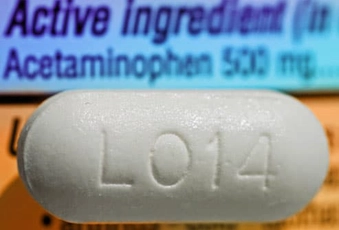Treating a Crohn's Disease Flare

Flares and Crohn's Disease
Take quick action when your symptoms flare. The right treatment can give you relief and prevent damage to your colon. Medication, diet, and lifestyle changes ease inflammation, pain, diarrhea, and other common problems.

Medicines to Stop a Flare
Your doctor may prescribe:
Steroids to ease inflammation. You'll take them for as short a time as possible, since they can have serious side effects.
Other drugs that fight inflammation. Your doctor may call them 5-ASAs.
Antibiotics to prevent or treat infections or fistulas, which are breaks in your intestinal wall. Two of the most commonly used antibiotics for Crohn's disease are ciprofloxacin (Cipro) and metronidazole (Flagyl).

Tame Your Tension
Stress doesn't cause Crohn's disease, but it may make symptoms worse. It could trigger a flare. Calming techniques like deep breathing or meditation may help you relax. Make sure you get enough exercise and sleep, too. And set limits on how much you take on. That way, you won't have too much to do when a flare hits and you don't feel well.

Drugs for Crohn's-Related Diarrhea
Over-the-counter medications that have bismuth subsalicylate or loperamide may help. They can dry out your mouth, so it helps to suck on ice or hard candies. Talk to your doctor before you take any medication for diarrhea.

Check Your Diet
Foods don't cause Crohn's, but some can make your symptoms worse, especially during flares. Common triggers include:
- High-fiber foods
- Fried items
- Spicy dishes
Write down the ones that seem to bother you, and then avoid them. During a flare, you may feel better if you try soft, bland foods and eat small meals during the day. A registered dietitian can help make sure you get enough nutrients.

Pain Relief for Crohn's Flares
Avoid taking non-steroidal anti-inflammatory drugs (NSAIDs), like aspirin, ibuprofen, and naproxen, for pain and discomfort. They can irritate your stomach and small intestine and make your symptoms worse. Talk to your doctor about using acetaminophen instead.

Meds for Tough Cases
If your symptoms are severe and steroids don't help you feel better, your doctor may suggest you try medications that affect your immune system. You might hear them called immunomodulators. They include 6-MP, azathioprine, and methotrexate.
Other medicines called biologics also target your immune system to help control inflammation. Some used for Crohn's include:
- Adalimumab (Humira)
- Adalimumab-atto (Amjevita), a biosimilar to Humira
- Adalimumab-adbm (Cyltezo), a biosimilar to Humira
- Certolizumab pegol (Cimzia)
- Infliximab (Remicade)
- Infliximab-abda (Renflexis)
- Infliximab-dyyb (Inflectra)
- Natalizumab (Tysabri)
- Ustekinumab (Stelara)
- Vedolizumab (Entyvio)

Drink Enough Water
The diarrhea that often comes along with a flare can leave you dehydrated. So drink several glasses of water a day. You may need more, depending on how severe your diarrhea is. Your doctor can tell you how much H2O is right for you.

Surgery for Severe Crohn's
You may need an operation if medications don't help, or if you have other complications. Some fistulas, abscesses, or bowel obstructions may require one. During the procedure, your doctor will remove damaged parts of your intestines. But they’ll try to preserve as much as they can to keep your digestion normal.
Show Sources
IMAGES PROVIDED BY:
1) Echo/Cultura
2) MIXA
3) Chris Clinton/Lifesize
4) Altrendo
5) iStockphoto
6) Gary Gardiner/Bloomberg
7) Thomas Northcut/Lifesize
8) Comstock
9) Stockbyte
REFERENCES:
American Academy of Family Physicians.
Crohn's & Colitis Foundation of America.
Hanauer, S. Digestive Diseases, 2009.
National Digestive Diseases Information Clearinghouse.
National Institute of Diabetes and Digestive and Kidney Diseases.
U.S. Department of Agriculture.